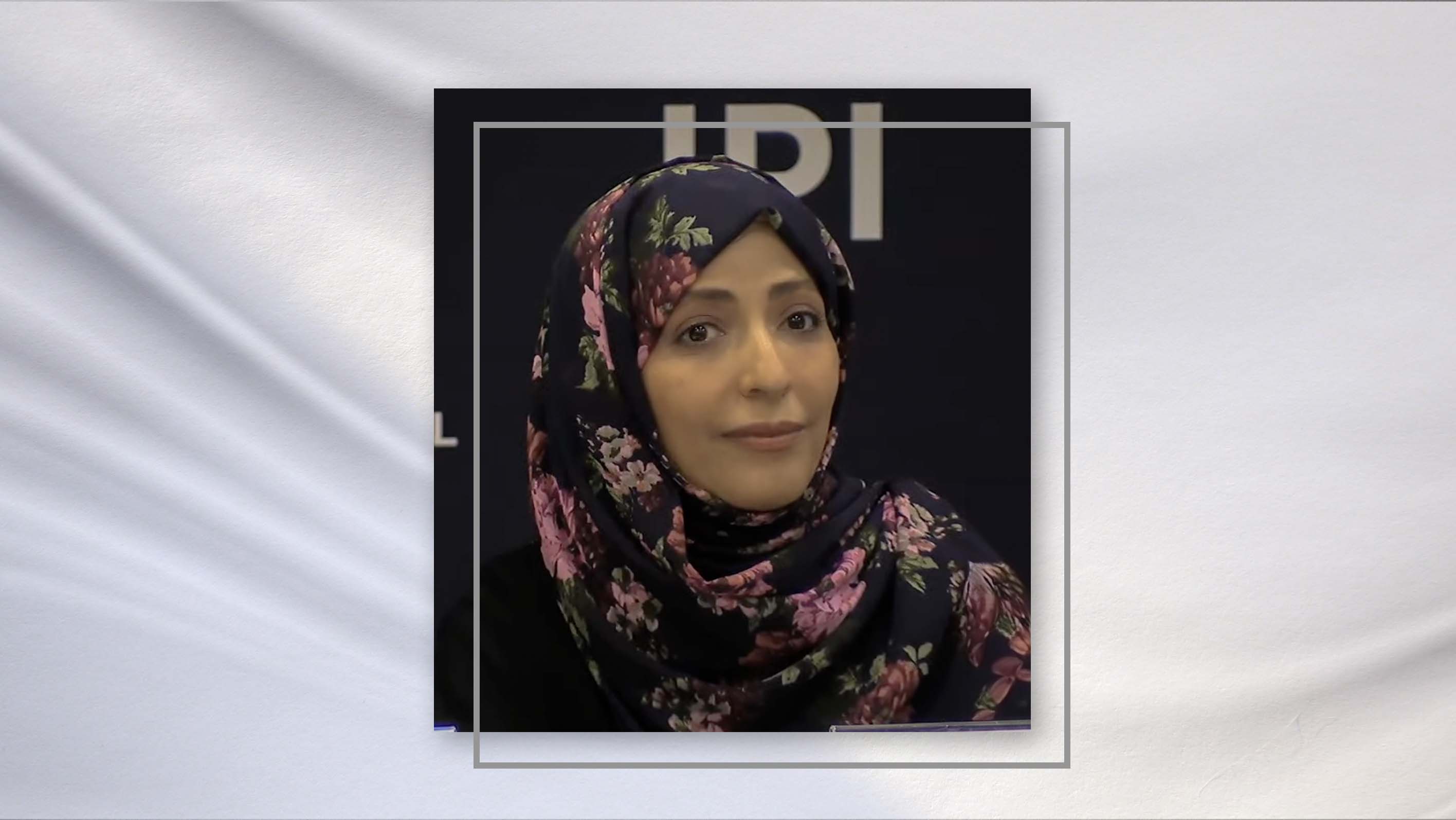
Tawakkol Karman Remarks at the International Peace Institute (IPI) - New York
Good morning, distinguished colleagues, friends, and fellow advocates,
It is an honor to be with you today as we reflect on the role of women’s leadership for international peace and security. We gather here not only to mark progress but to confront a sobering truth: twenty-five years after the adoption of Resolution 1325, the world is failing women, and by failing women, it is failing peace itself.
The Current Moment
History and lived experience have shown us that when women are given space and opportunity, they become powerful agents of change. In societies torn by conflict, women have always been the first line of defense for life, the guardians of social fabric, and the builders of bridges across divides.
Women do not seek victory over one side, but rather survival and dignity for all, a secure future for their children, and nations founded on justice and human rights.
Peace is not simply the absence of war; it is the presence of justice, the guarantee of rights, and the building of institutions that protect human dignity instead of violating it. This is why the inclusion of women in negotiations, in peacebuilding, and in shaping security policies is not optional — it is essential.
And yet, twenty-five years after the adoption of UN Security Council Resolution 1325, women remain underrepresented in peace processes and decision-making. Their voices are still sidelined, even though they are among those who bear the heaviest burdens of war and conflict.
We are living through a dangerous time. Authoritarianism is rising, patriarchy is striking back, wars and occupations are expanding, and hate and racism are being weaponized to divide societies and justify atrocities.
And yet—in Gaza, in Yemen, in Sudan, in Ukraine, and in so many other places—women are at the frontlines of survival and resistance. They are defending freedom, protecting communities, resisting occupation, and building peace out of ruins.
In Gaza, women are facing genocide. More than 70,000 people have been killed—most of them women and children. Thousands more remain trapped under the rubble of bombed houses. Women there are giving birth in destroyed hospitals, struggling to feed their children amid famine, and documenting crimes with extraordinary courage.
In my country, Yemen, women are crushed between the tyranny of the Houthi militia and the suffocating guardianship of Saudi and Emirati intervention. They are denied rights, silenced, and excluded from shaping their own nation’s future.
In Sudan, women and children are enduring an ugly war where atrocities are committed by the Rapid Support Forces, armed and enabled by foreign powers. Rape and famine are being used as weapons, while entire communities are uprooted.
In Ukraine, women are holding families and communities together under relentless aggression.
The Failure of Resolution 1325
When Resolution 1325 was adopted, it promised women equal participation, protection, and leadership in peace and security. But twenty-five years later, women remain excluded from negotiations, underrepresented in politics, and under attack in conflicts.
The problem is not the absence of commitments—it is the absence of enforcement and political will. Governments make speeches about women’s leadership, but they do not make it a reality.
What We Must Do Differently
Twenty-five years after Resolution 1325, the lesson is clear: words are not enough.
Women’s rights must be binding obligations, not optional recommendations. Resolution 1325 remains more a slogan than a system. It must become enforceable law. Women’s inclusion must be a legal requirement, with measurable benchmarks and consequences for non-compliance.
Move beyond tokenism. Supporting women cannot mean inviting one symbolic woman to a negotiation table. It must mean restructuring institutions so that women are equal decision-makers everywhere—in peace talks, in political transitions, in reconstruction.
Direct support to frontline women’s organizations. Too often, funding bypasses those who risk their lives daily for freedom and justice. Grassroots women leaders must receive direct, sustained support, not scraps left over after governments and large institutions.
Stand against authoritarianism, occupation. These forces reinforce one another. You cannot empower women while empowering their oppressors. You cannot empower women while strengthening dictators or enabling occupations. Supporting women requires political courage Supporting women requires political courage—to call out dictators, to end occupation, and to refuse complicity in repression.
Affirm that women’s freedom is inseparable from the freedom of all society. A society cannot enslave its people yet pretend to liberate its women. When we stand with women, we must also stand with their communities in the struggle for freedom, dignity, and the rule of law. Women’s liberation rises together with the liberation of their nations.
Integrate new realities—technology and digital rights. Women activists are using technology to document crimes, mobilize communities, and connect across borders. But they also face surveillance, harassment, and disinformation. Protecting women online is now part of protecting them in peace and security.
Closing
Friends,
Resolution 1325 was a promise—a promise that women would no longer be invisible in peace and security. Twenty-five years later, that promise remains broken.
But women have not waited. In Gaza, Yemen, Sudan, Ukraine, and across the world, they are already leading, already building peace, already carrying the weight of survival and dignity. The real question is whether the international community will finally honor its commitments—or continue to betray them.
The choice before us is simple: either make 1325 real, or admit that the world has chosen to abandon women, and with them, abandon peace.
and remember that when we speak of women’s leadership for peace and security, we are not only speaking about the future of women — we are speaking about a better future for all humanity.
Empower women, or lose peace.
